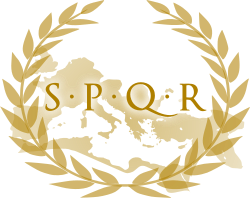 |
|---|
| Periods |
|
| Constitution |
| Political institutions |
| Assemblies |
| Ordinary magistrates |
| Extraordinary magistrates |
| Public law |
| Senatus consultum ultimum |
| Titles and honours |
Various lists regarding the political institutions of ancient Rome are presented. [1] Each entry in a list is a link to a separate article. Categories included are: laws (5), and legislatures (7); state offices (40) and office holders (6 lists); political factions (2 + 1 conflict) and social ranks (8). A political glossary (38) of similar construction follows. [2]